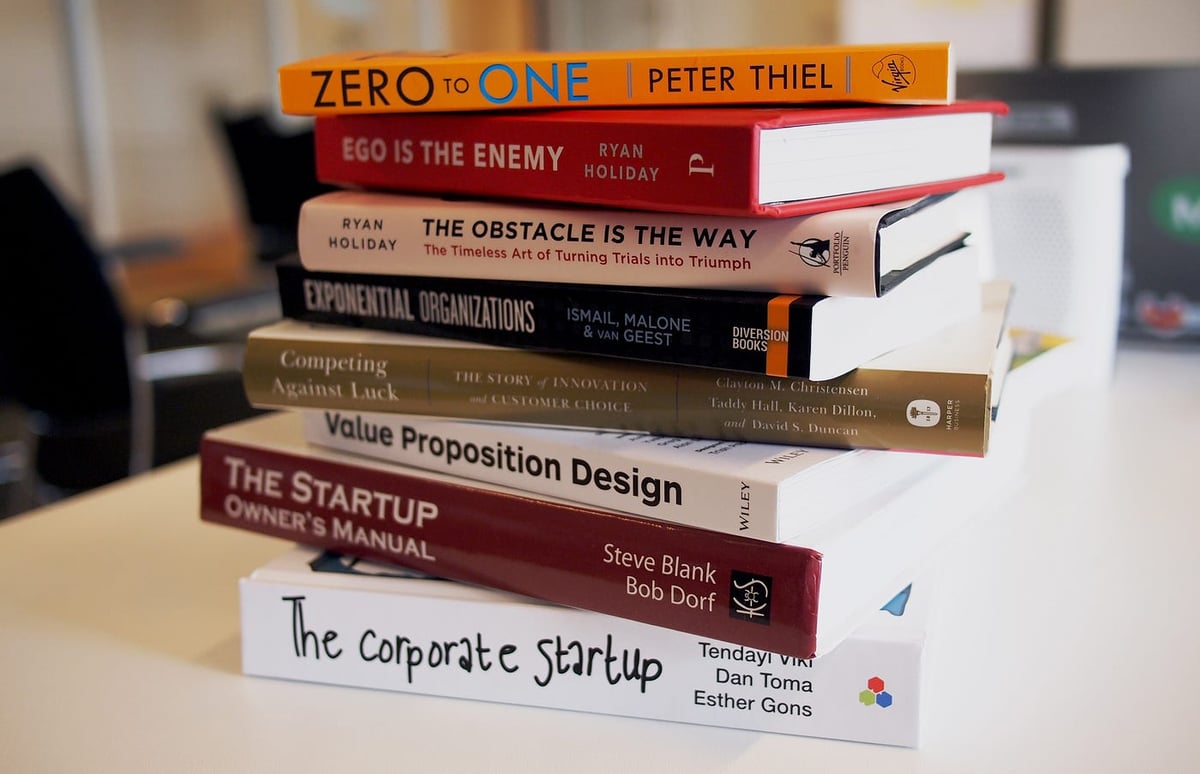Letting your ego get in the way of good UX
One of the best books I ever read that helped me grow as a designer just so happened to not be a design book at all, it was a self-help book called "Ego is the Enemy" by Ryan Holiday.
I'm sure we all know what an ego is but just to be super clear here is the Google definition - "Ego - a person's sense of self-esteem or self-importance."
As UX and product designers, we bang on so much about the user. The user this, the user that. It's the basis of every decision we ever make and we often claim to put the user at the heart of every decision that we ever make. Deep down we all believe and to some extent, we know, that it is absolutely best to put the user front and center in everything that we do. However, very often in real-world scenarios we unknowingly put ourselves first due to the fact that we hold our ideas way too close to our egos than necessary.
Real-life example #1
Picture the scene... It's a Wednesday morning on day three of a design sprint week. The task at hand is to decide on the best ideas that were brainstormed the day before. A few of your ideas are in there and you absolutely believe that one of your ideas is the best and that it will be the one that pushes the business strategy to the next level and generate that extra 100k users that your boss is pushing for. Your team all begin to vote and it comes down to the final two ideas, yours and somebody else's. The ego will most likely step in and start convincing you why you need to fight till death (subtly) until everybody is convinced on the team, that yours is the idea the team should work on.
Real-life example #2
Here's another example, you've been working on developing some new functionality for your website or app, the project has taken you nearly 3 months to complete. You've explored all different variations of the designs, you've applied every gestalt principles under the sun you can think of to ensure that the I/A, the hierarchy and all of the interactions are as close to 'perfect' as humanly possible. Then the moment comes, you take it to the head of the product team for review and she explains why, based on new business needs the team may need to pivot onto a new bit of functionality and this may have to be reviewed at some point in the future (potentially never again) Admittedly, this is extremely frustrating to hear. Why was I not told earlier? Don't they want to at least test my idea out? What if my design is actually the thing we should be testing?
The emotional attachment and knowing when to switch it off
Do you see the pattern forming? We very often build an emotional attachment to our work - understandably right? We care about it, we want it to be a success, and we want to see results. The problem with this approach and letting our egos play too much of a role in this process is that we're not truly the best designers that we know we can be. We might get too offended at the actual results of a testing session or maybe we struggle to pivot onto the next project because we're too attached. Whatever it may be, the more you learn how and when to disconnect yourself from your ideas or your designs, that you hold so dearly close to you, the better.
Ego is the enemy by definition
"Ego Is the Enemy puts forth the argument that often our biggest problems are not caused by external factors such as other people or circumstances. Instead, our problems stem from our own attitude, selfishness and self-absorption." One of the main takeaways UX has taught us is that our assumptions are often wrong.
Self-help or design-help
The same applies in the self-help world as it does to the design world. Only we really create the majority of issues that we claim to be unfair. Is it the situation that is the problem or is it your attitude towards the situation? Is it the fact the company wants to pivot and that your design performed the 'worst' in the testing session or is it the fact that your attitude towards your design was never right in the first place? Ideas are there to be tested, your'e simply the one who needs to come up with the ideas and then mock them up ready to gain insights, however emotionally, that's where it needs to end. Try not to become attached to them. Try not to care what anybody may say or think about them (unless you believe they're genuinely misunderstanding something) and most of all try not to let your ego get the better of you.
Captain of your ship
Think about it like this: you're the captain of a ship, steering and guiding, but the passengers—the users—are the ones who decide where the ship goes. No bias, no ego, just what's best for them. So, now that you've read this, there's no excuse. It's time to let go of the "me vs. my ideas" struggle and embrace the awesome power of user-centered design.
Conclusion
What separates a good designer from a great designer can be many things but I can absolutely tell you for sure, from past experience, that one of the top things I see time and time again, that people really struggle to learn, is the sheer fact that you are not your ideas. You are not your designs and no amount of task failures or opposing opinions should ever truly bother you if you master the art of detaching yourself from your ideas. Not only will this cause less stress and will people admire you, but you will also eventually see the results cascade down into the product knowing that your users are truly the ones making all of the final decisions. You're purely connecting the dots, coming up with the ideas, and implementing them when the time comes but it's the user time and time again that should be dictating what needs to happen with zero bias or ego input from anyone in your team, especially you because you've now read this article and have no excuse.
p.s. Check Ryan's book out - it's amazing!
https://www.amazon.co.uk/Ego-Enemy-Ryan-Holiday/dp/1591847818








